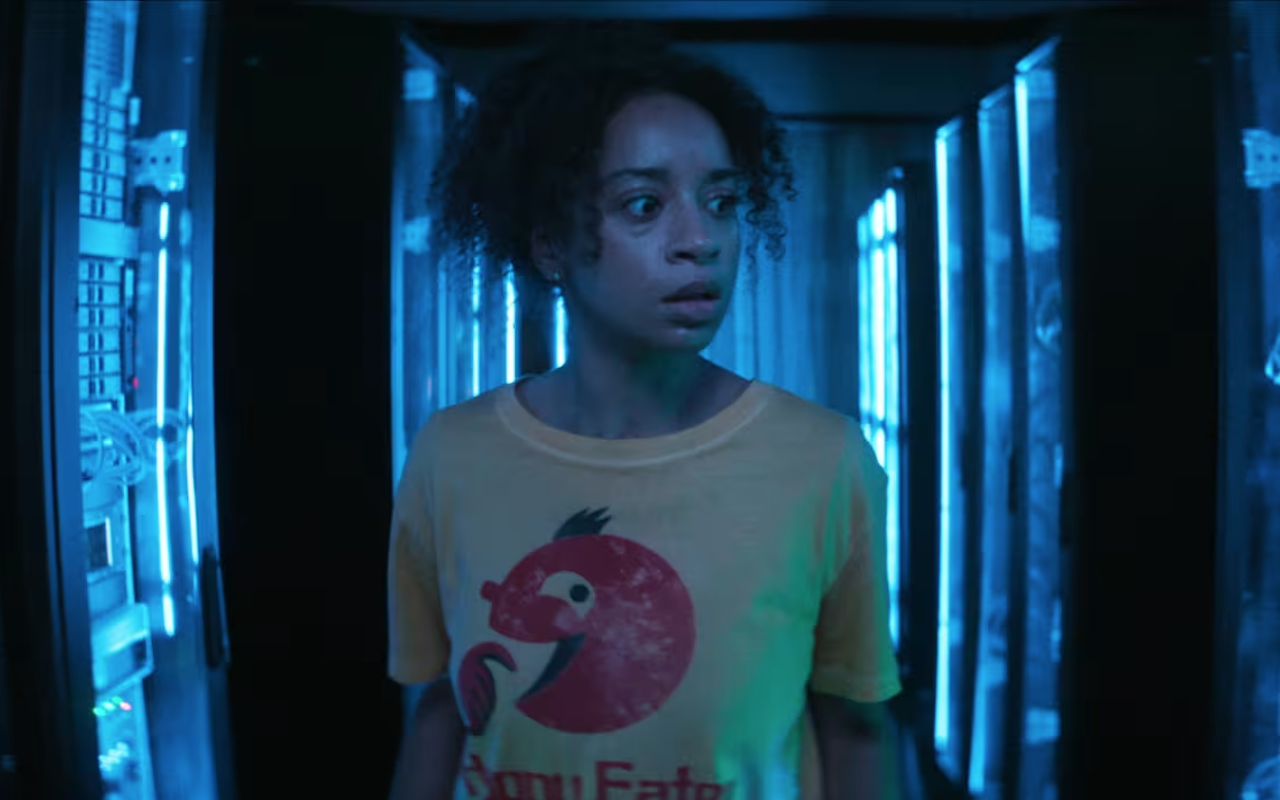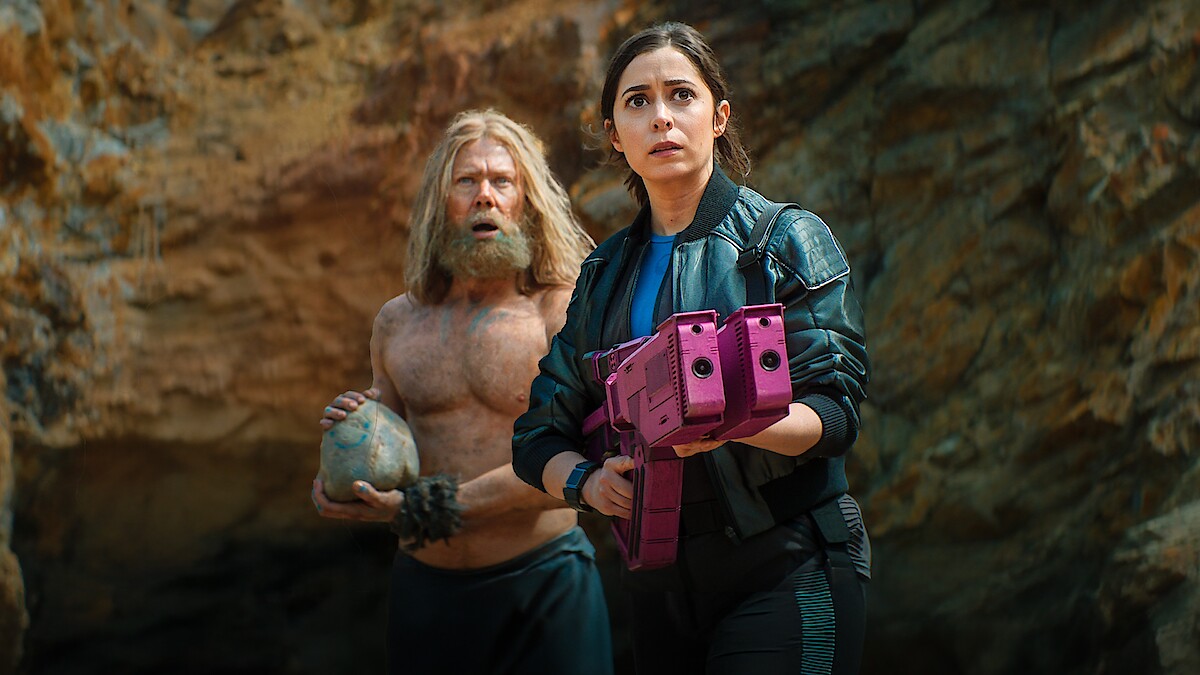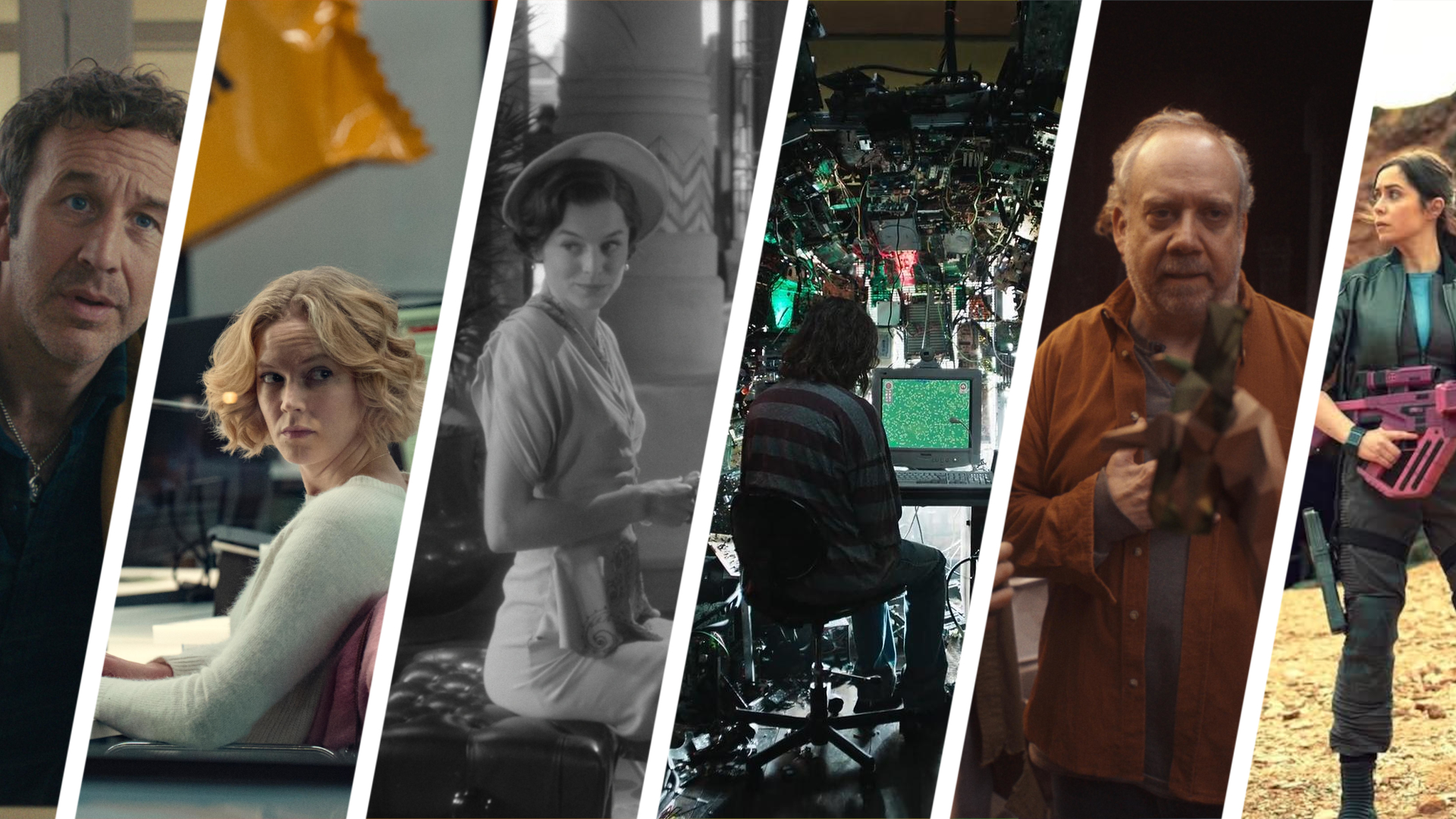“Black Mirror” Season 7, now on Netflix, offers a provocative mix of technology and human nature, rewarding viewers with unsettling insights and potential sleepless nights. The season features six episodes ranked from weakest to strongest. Highlights include “Hotel Reverie,” a stylish, AI-influenced romantic tale, and “Common People,” which critiques subscription services’ pitfalls through a bleak narrative. “Eulogy,” featuring Paul Giamatti, stands out with its poignant exploration of love and memory through immersive technology. The season cleverly balances horror and emotion, ensuring there’s something for every viewer’s taste, despite some episodes feeling less impactful than others.
Let’s face it, “Black Mirror” offers an often-sardonic perspective on human nature, technology, video games, films, space exploration, alternate dimensions, digital gadgets, and parallel realities, which isn’t for the timid.
Yet, those bold enough to dive into its thought-provoking frights will uncover new insights and potentially even a few restless nights. It’s all part of the eerie exploration into our innermost dreams and anxieties.
Season 7 has just premiered on Netflix, marking yet another outstanding addition to one of the best sci-fi series ever, featuring something for everyone’s taste and mood. We’ve viewed all six episodes of Black Mirror season 7 and ranked them from least to most impressive. No matter the order in which you decide to watch, be sure to keep a light on and have some tissues at hand.
6. “Hotel Reverie”
Featuring Issa Rae and Emma Corrin in a stylish sapphic narrative, this standout episode is one of two feature-length installments for this 2025 season and toys with the idea of incorporating AI-generated representations of actors into classic films.
Star Brandy Friday (Rae) yearns for the more dazzling roles of Hollywood’s past and opts to engage with an interactive AI software called Redream, which places modern celebrities into timeless films. Her favorite movie is the 1949 classic “Hotel Reverie,” where her gender-swapped character becomes the romantic counterpart to a vintage actress named Dorothy Chambers (Corrin). However, the simulation derails when key plot points diverge, blending the two realms. Will Brandy be trapped in that alternate existence, or will she manage to escape untouched?
Sadly, this episode feels reminiscent of “Star Trek: First Contact’s” holodeck sequences or HBO’s “Westworld.” While there are some redeeming moments, overall, this sluggish and overwritten episode stands out as one of the season’s weaker installments.
5. “Common People”

This grim installment stars Rashida Jones and Chris O’Dowd as a middle-class couple, Amanda and Mike. It delves into our collective frustration with the ever-evolving mobile phone plans and subscription-based streaming service costs. Following a medical emergency, Amanda undergoes experimental brain surgery by Rivermind, which connects to a subscription service that uploads a backup of a healthy brain via a Wi-Fi-like method for $300/month.
However, complications arise as her sleeping hours extend and she experiences blackouts when moving too far from Rivermind’s service zones. Amanda begins randomly broadcasting advertisements and other bizarre anomalies, all of which require pricier plans and new upgrades to eliminate.
This leads to a devastating downward spiral in their lives and an alarming conclusion that may leave you feeling sullied and reconsidering your streaming subscriptions… a daring choice from a service that recently hiked its prices again.
4. “Bête Noire”

Title meaning: “a person or thing strongly detested or avoided.”
Starring Sienna Kelly as Maria, a flavor expert at a confectionery company, this intense episode comes off as slightly lighter than the dread of “Common People,” weaving a twisted tale of approximately fifty minutes about the lingering impacts of childhood bullying and a groundbreaking snack company known as Ditta.
When a strange ex-classmate named Verity Greene (Rosy McEwen) shows up at a tasting focus group and joins Ditta as a research assistant, Maria recalls her peculiarities and her derogatory nickname “Milkmaid.”
Structured by days of the week and accompanied by eerie organ music, this bizarre episode is quite the ride. As Maria’s perception of reality starts to warp, she suspects that Verity is sabotaging her life, resulting in a complicated entanglement of quantum mechanics, infinite realms, and parallel universes. Be wary of who you tease!
3. “Plaything”

Set in a near-future London of 2034, “Plaything” is a captivating chapter focused on a notorious murder suspect and a cult classic video game from the ‘90s, featuring a plethora of digital creatures that players can nurture, interact with, and guide.
A standout performance comes from former Time Lord Peter Capaldi as Cameron Walker, a once PC Zone game journalist. His youthful self is depicted in flashbacks as a nerdy writer tasked with testing a peculiar new simulation disguised as a video game.
Fans might remember Will Poulter’s eerie game developer, Colin Ritman, from 2018’s “Black Mirror: Bandersnatch,” and he returns to expertly reprise his role. The small yellow creatures from his game, known as Thronglets, become increasingly demanding as the plot unfolds, leading to uncomfortable situations and a gripping conclusion.
Strong narrative, impressive production design, and outstanding acting make this 42-minute episode, which connects back to “Bandersnatch,” one of the highlights of the season. Don’t miss the tie-in mobile game from Netflix!
2. “USS Callister: Into Infinity”

This is the inaugural direct sequel to a “Black Mirror” episode, continuing the story from Season 4’s “USS Callister” released in 2017. In that episode, a socially awkward video game mastermind named Robert Daly creates digital replicas of his colleagues to form an adoring crew confined to a “Star Trek”-like VR universe where he acts as a despotic captain. SPOILER ALERT: That previous installment concludes with both Daly’s digital and real death, leaving the USS Callister adrift in an infinite virtual realm with a new commanding officer.
Running for nearly 90 minutes, “Into Infinity” delivers an exciting mission that resumes with most of the original cast venturing into uncharted digital territories with fresh dangers, targeted for pilfering players’ MMO game credits to survive while being hunted as illegal clones.
Nanette Cole (Cristin Milioti) returns as the seasoned, wide-eyed leader who collaborates with her real-world counterpart at Callister Inc. to explore the backstory of CEO James Walton and the company’s origins. It concludes satisfyingly in true “Black Mirror” fashion, serving as a fun and clever companion to the Emmy-winning original.
1. “Eulogy”

“Black Mirror” shines brightest when examining the infinitely intricate subjects of human affection and memory. In this poignant episode, we meet the talented Paul Giamatti as Phillip, a solitary and irritable man who discovers technology that allows him to enter physical photos containing images of Carol, a departed girlfriend from England.
A compassionate company known as Eulogy specializes in creating immersive tributes for the loved ones of those who have passed away, and through their AI-enhanced kit, he can assemble painful digital memories for her remembrance.
This process transports him into a haunted past, awakening repressed memories of their relationship, all while guided by a hauntingly familiar AI host. Giamatti delivers a masterful performance in this bittersweet exploration, journeying through freeze-framed memories. Profoundly personal, exquisitely paced, and beautifully delivered, “Eulogy” encapsulates a heartfelt emotional resonance. The poignant arrows of love have rarely been as poignantly expressed and felt. Kudos to everyone involved in crafting this sentimental gem!
All six episodes of “Black Mirror” Season 7 are now available for streaming on Netflix.
